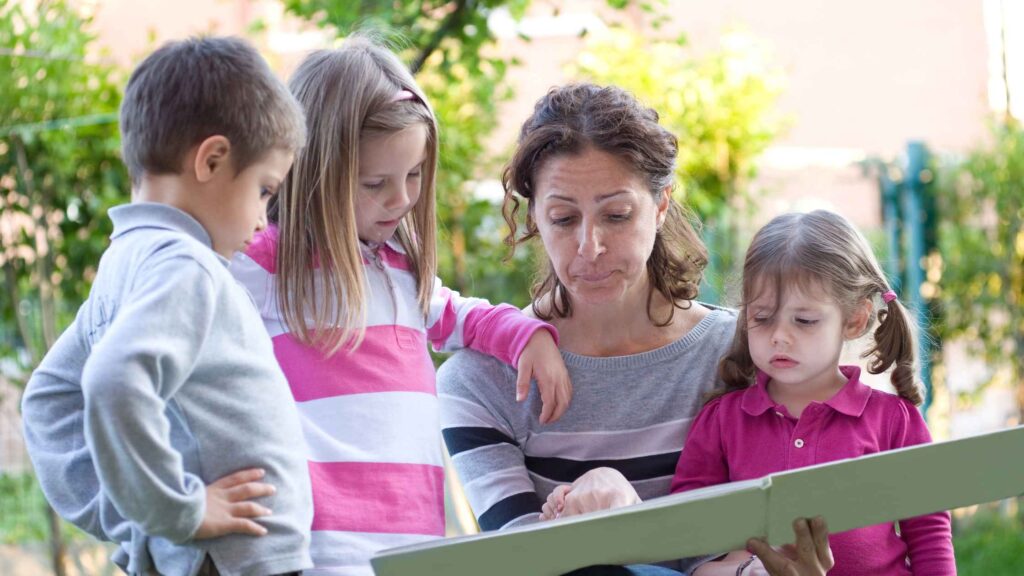In today’s rapidly changing and often chaotic world, raising mentally strong children has become more crucial than ever.
As parents, we want to equip our kids with the resilience and emotional fortitude they need to navigate life’s challenges successfully. But how can we do this when the world around us seems increasingly unstable?
This comprehensive guide will explore practical strategies and insights to help you nurture mental strength in your children, preparing them for whatever life may throw their way.
Let’s dive in and discover how we can raise a generation of mentally tough, emotionally intelligent, and resilient individuals.
Understanding Mental Strength in Children

Before we delve into specific strategies, it’s essential to understand what mental strength really means in the context of child development.
What is Mental Strength?
Mental strength is not about suppressing emotions or acting tough. Instead, it’s about developing the ability to:
- Cope with challenges and setbacks
- Manage emotions effectively
- Maintain a positive outlook in difficult situations
- Bounce back from failures
- Adapt to change
- Persist in the face of obstacles
As Amy Morin, psychotherapist and author, puts it:
“Mental strength isn’t about acting tough or suppressing emotions. It’s about being resilient and having the courage and confidence to reach your full potential.”
Why is Mental Strength Important for Kids?
In our increasingly complex world, mental strength is a crucial asset for children. It helps them:
- Navigate social pressures and peer relationships
- Handle academic stress and performance anxiety
- Cope with family changes or difficulties
- Develop a growth mindset and embrace challenges
- Build self-esteem and confidence
- Prepare for future life challenges and transitions
Now that we understand the importance of mental strength, let’s explore how we can foster it in our children.
1. Embrace Failure as a Learning Opportunity

One of the most critical aspects of building mental strength is teaching children how to handle failure. In our success-driven society, it’s easy for kids to develop a fear of failure that can hinder their growth and willingness to take risks.
Strategies to Help Kids Embrace Failure:
- Model a healthy response to failure: Share your own experiences of failure and how you learned from them.
- Praise effort over outcome: Focus on the process and hard work rather than just the end result.
- Encourage problem-solving: When faced with a setback, guide your child to brainstorm solutions rather than fixing the problem for them.
- Reframe failure as feedback: Help your child see failures as valuable information that can guide future attempts.
- Celebrate mistakes: Create a family culture where mistakes are seen as opportunities for growth and learning.
Remember, the goal is not to shield our children from failure, but to equip them with the tools to handle it constructively.
2. Foster Emotional Intelligence

Emotional intelligence is a cornerstone of mental strength. It involves recognizing, understanding, and managing one’s own emotions, as well as empathizing with others.
Ways to Develop Emotional Intelligence:
- Name and validate emotions: Help your child identify and express their feelings.
- Practice active listening: Give your full attention when your child is speaking about their emotions.
- Teach coping strategies: Introduce techniques like deep breathing, counting to ten, or visualization to manage strong emotions.
- Use emotional coaching: Guide your child through emotional experiences, helping them understand and process their feelings.
- Encourage empathy: Help your child consider others’ perspectives and feelings.
- Model emotional regulation: Demonstrate healthy ways of managing your own emotions.
By fostering emotional intelligence, we give our children the tools to navigate complex social situations and manage their inner emotional landscape effectively.
3. Cultivate a Growth Mindset

A growth mindset, a concept developed by psychologist Carol Dweck, is the belief that abilities and intelligence can be developed through effort, learning, and persistence. This mindset is crucial for building mental strength.
Strategies to Promote a Growth Mindset:
- Praise effort and strategy: Instead of saying “You’re so smart!”, try “I’m proud of how hard you worked on that!”
- Encourage challenges: Motivate your child to take on difficult tasks and see them as opportunities to grow.
- Teach the power of ‘yet’: When your child says “I can’t do it,” encourage them to add “yet” to the end of the sentence.
- Share stories of perseverance: Expose your child to biographies and stories of people who overcame obstacles through hard work.
- Normalize struggle: Help your child understand that struggling with something new is a natural part of learning.
- Model a growth mindset yourself: Share your own learning experiences and how you’re working to improve.
By fostering a growth mindset, we help our children develop resilience and a love for learning that will serve them well throughout their lives.
4. Teach Problem-Solving Skills

Problem-solving is a critical life skill that contributes significantly to mental strength. When children know how to approach and solve problems, they feel more confident and capable.
Steps to Enhance Problem-Solving Skills:
- Identify the problem: Help your child clearly define what the issue is.
- Brainstorm solutions: Encourage your child to come up with multiple possible solutions, no matter how creative or unlikely they might seem.
- Evaluate options: Guide your child in considering the pros and cons of each solution.
- Choose and implement a solution: Let your child select what they think is the best option and put it into action.
- Reflect on the outcome: Discuss with your child whether the solution worked and what they learned from the process.
- Celebrate effort: Praise your child’s problem-solving attempts, regardless of the outcome.
Remember, the goal is to guide your child through the process, not to solve the problem for them. As they practice these skills, they’ll become more confident in their ability to handle challenges independently.
5. Promote Physical Health and Well-being

Mental strength is closely tied to physical health. A healthy body supports a healthy mind, and taking care of one’s physical health can be a powerful way to build resilience.
Ways to Encourage Physical Well-being:
- Prioritize sleep: Ensure your child gets adequate sleep for their age group.
- Encourage regular exercise: Make physical activity a fun family affair.
- Promote healthy eating: Teach your child about nutrition and involve them in meal planning and preparation.
- Practice mindfulness: Introduce age-appropriate mindfulness exercises or meditation.
- Limit screen time: Set healthy boundaries around technology use.
- Encourage outdoor play: Spending time in nature can reduce stress and improve overall well-being.
By taking care of their physical health, children build a strong foundation for mental and emotional resilience.
6. Build Strong Family Connections

A supportive family environment is crucial for developing mental strength in children. Strong family bonds provide a secure base from which children can explore the world and face challenges.
Strategies to Strengthen Family Connections:
- Create family rituals: Establish regular family meals, game nights, or other traditions.
- Practice active listening: Give your full attention when your child is speaking to you.
- Show affection: Regular hugs and expressions of love reinforce your child’s sense of security.
- Spend one-on-one time: Make time for individual attention with each child.
- Share family stories: Talk about your family history and values to foster a sense of belonging.
- Encourage open communication: Create an environment where children feel safe sharing their thoughts and feelings.
Strong family connections provide children with a support system they can rely on when facing life’s challenges.
7. Teach Healthy Coping Mechanisms

Life inevitably brings stress and difficulties. Teaching children healthy ways to cope with these challenges is essential for building mental strength.
Healthy Coping Strategies to Teach Your Kids:
- Journaling: Encourage your child to write about their feelings and experiences.
- Art and creative expression: Provide opportunities for artistic outlets.
- Physical activity: Teach them to use exercise as a way to manage stress.
- Talking it out: Encourage them to share their worries with trusted adults or friends.
- Relaxation techniques: Teach deep breathing, progressive muscle relaxation, or visualization.
- Positive self-talk: Help them develop a repertoire of encouraging phrases they can use when facing challenges.
By equipping children with these tools, we help them manage stress and anxiety in healthy ways, building their mental resilience.
Conclusion: Raising Mentally Strong Kids is a Journey
Raising mentally strong children in an unstable world is no small task, but it’s one of the most important things we can do as parents.
By implementing these strategies consistently and patiently, we can help our children develop the mental strength they need to thrive in any circumstance.
Remember, building mental strength is a gradual process. There will be setbacks and challenges along the way, but each of these is an opportunity for growth and learning.
As parents, our role is to provide guidance, support, and a safe environment for our children to develop these crucial skills.
By focusing on embracing failure, fostering emotional intelligence, cultivating a growth mindset, teaching problem-solving skills, promoting physical health, building strong family connections, and teaching healthy coping mechanisms, we set our children up for success not just in childhood, but throughout their lives.
Let’s commit to raising a generation of mentally strong, resilient, and emotionally intelligent individuals who are ready to face whatever challenges the world may bring. The future depends on it.
What strategies have you found effective in building mental strength in your children? Share your experiences and insights in the comments below – let’s learn from each other on this important parenting journey.




